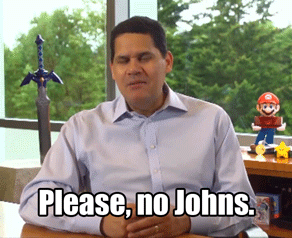Judo777
Smash Master
- Joined
- Sep 9, 2008
- Messages
- 3,627
My issue is that, that option you just described is a hard read. Like that's a solid 1 second in advance prediction. In brawl (and most other fighters) predictions like that result in huge out of the ordinary punishes. In melee you HAVE to make gigantic reads and take extra precautions to deal with...... the most basic pressure options in the game. It would be like (in street fighter) saying "all you have to do to deal with pokes, is to reliably counter hit them" when in reality counter hitting your opponent results in extra stun and usually huge punishes, because it is a pretty substantial read.ATs are cool. When you start multishining someone's shield, that's sending a message. "You're not on my level".
You'd be surprised. Yes, nair is safe on shield, but there are more defensive options in Melee than just shielding, you know. If you avoid a nair approach by wavedashing or dash dancing out of the way, you can easily grab the landing lag, and against Fox, a good grab can often lead to a stock. You should only ever nair if your opponent is cornered, you have a read on where they're going to be, or you've conditioned them to shield. This is what happens if you just throw out moves hail mary.
This is opinionated (though I'd be hard pressed for someone to convince me otherwise) blocking (or in brawls case shielding), should always be the most basic defensive option. That's why they always come out frame 1, and should usually result in relatively neutral position on a successful block (at least from max range of your opponents faster options). That's the essential rock paper scissors. Attack beats grab, block beats attack, grab beats block. And they should be equal WITH RESPECT TO HOW EASY THEY ARE TO LAND. So any attack that is about as easy to land as a grab, should be relatively neutralized (or even punished by) a successful block, and accordingly for each other option. Granted there are ways that you can manipulate each option to beat its counter option with a little bit of prediction (pivot grabbing behind your opponent so they cannot retaliate with a jab, using a stronger slower attack that is safe on shield, or reading the grab and spot dodging out of shield). But at base level that is the rock paper scissors of the game (and should be IMO).
In melee shield seems to get completely destroyed by so many attack options, that the game becomes "just don't be in a spot where you have to block the move," which is frustrating because that is usually the same mentality tied with what should be SIGNIFICANTLY worse positions such as "just don't be offstage without a double jump."


